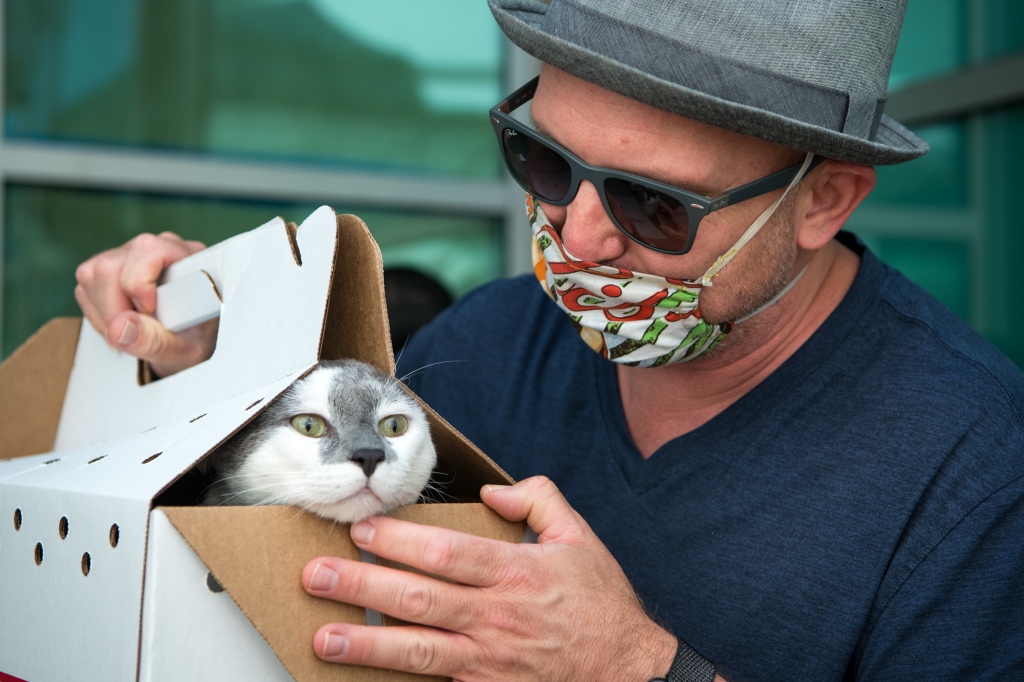- February 15, 2022
- No Comment
- 6 minutes read
Predicted pandemic pet crisis seems to have sidestepped Bay Area – The Mercury News

Trending:
Rescue groups feared there might be a reckoning when California went into a COVID lock-down and people sought companionship by adopting pets. A day might come when people, who were no longer cooped up at home, might discover that adopting Fido might not have been the best decision.
Here’s cause for cautious optimism: That day has yet to arrive. So far, people are keeping their pandemic pets.
The Peninsula Humane Society and SPCA, as well as Tony La Russa’s Animal Rescue Foundation, Berkeley Humane and East Bay SPCA, are seeing lower than average pet returns.
Allison Lindquist, president and CEO of East Bay SPCA, says rescue groups had been bracing for the easing of COVID restrictions, when pet owners might begin venturing back to workplaces and traveling once more. A tsunami of returned pets was feared, but so far, there has been hardly a ripple.
Overall, pet adoption enthusiasm is at such a peak, 13 Northern California rescues, led by East Bay SPCA and funded by BISSELL Pet Foundation, this week flew in more than 100 dogs, cats and kittens from an overcrowded Tulsa, Oklahoma shelter and are seeking new homes for them.
Lindquist says she and the rescue are part of a 400-member statewide rescue coalition, and they’ve all be watching the situation. None in the group, she says, has reported a problem with returned pets and most, like East Bay SPCA, are seeing a lower than average return.
Nationally, about 10 percent of all pet adoptions fall through for a variety of reasons. Buffy Martin-Tarbox, communications director for Peninsula Humane, said a primary cause is people discovering they are allergic to their pets, especially cats. Other reasons include behavior problems and incompatibility with children or other pets.
People may be struggling with their pets, but they are reaching out for help, which is keeping the pet in its loving home. East Bay SPCA, whose dogs were all adopted within 48 hours after the original shelter-in-place order was given, has seen a big demand for help through its behavior hotline.
The shelter also has a full-service veterinary clinic that is open to the public and the clinic has been slammed with requests, Lindquist says, with many people waiting up to three months for appointments.
Contra Costa County’s Animal Services is seeing a slightly different side of the coin. It’s not so much adoption returns — where an animal goes back to the shelter from where it was adopted and is re-homed — as pet surrenders, shelter spokesman Steve Burdo says, where people give up ownership of their pets. Most of the surrendered animals, he says, were adopted in the past 11 months, not through the county but through Craigslist or other agencies.
Surrender requests during pre-pandemic times, Burdo says, averaged 100 to 150 a month. During the pandemic, the number dropped to about 50 a month. So far in July, the county has had 80 requests.
“Our owner surrender process revolves around seeing the pet being surrendered into the shelter only as a last resort or in urgent cases,” Burdo says.
For those people who might be struggling in keeping their companions, here are some tips from rescuers:
Contact the rescue where you adopted your pet to see what services are available to you. Most have experts and classes to help you change behaviors that are causing problems. They also can guide you in ways to transition your pet from being at home with family all day to being left alone for periods of time.
If you are being evicted or are running short of funds, some rescues have pet food pantries and can assist in finding temporary homes for you and your pet, or emergency fostering for your pet.
If you need to move with your pet, rescues can offer tips on how to negotiate a rental with your pet.
Even if you adopted your pet from another agency or obtained the animal through other avenues, rescue groups are willing to work with you to find solutions. The goal, they say, is to make the adoption successful.
A recent Bay Area News Group Newsroom @Home webinar tackled pandemic pets’ transition from shelter-in-place to a more typical schedule. The video can be viewed here and at https://extras.mercurynews.com/events.
Get Morning Report and other email newsletters
Copyright © 2022 MediaNews Group

